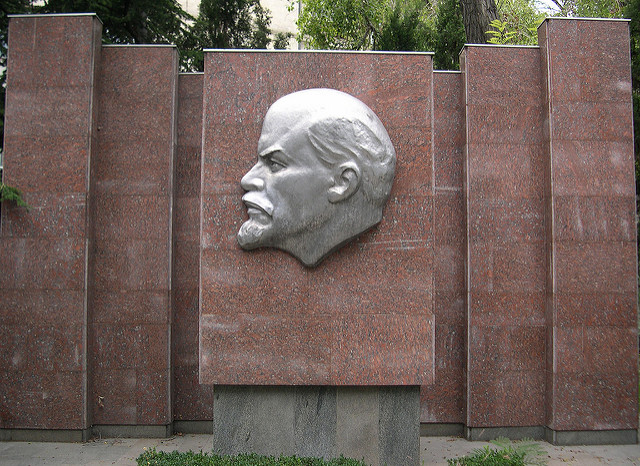There is something to be said for relatability in a politician. Even Franklin Roosevelt, whose background was as firmly patrician as that of any US president, managed through the medium of fireside chats delivered over the radio to convince Americans the he understood their situation and cared about their fate.
More recently, George W. Bush succeeded, via the affectation of an exaggerated Texas drawl, to present an air of folksiness that belied his Connecticut roots and his membership in a family that is as close to hereditary aristocracy as we have in this country.
As exploits of the current occupant of 1600 Pennsylvania Avenue clearly indicate, the ability to relate (or to seem to relate) to the commoners can go a long way in American politics.
Mr. Trump seems to want (and to have expected from his ascension to the presidency) to be liked and respected by people. This is a true oddity given the current circumstances. The levels of polarization in this country are such that one can predict with certainty that about 40% of the population will view any politician as ranking somewhere between Joseph Stalin and the devil incarnate irrespective of what political positions they espouse.
For confirmation of this fact, one need look no further than the current senate race in Alabama. The candidate of the Democratic Party is a confirmed centrist and a former prosecutor whose accomplishments include winning convictions against former member of the Ku Klux Klan for their roles in the bombing the 16th Street Baptist Church.
Nonetheless, a significant proportion of voters in that state would prefer the services of a man who has twice been ejected from the judicial bench for his extremist views and who, it now appears clear, solicited sexual contact in his 30s with a girl of 14. It is difficult to know whether the intellectual gymnastics now being undertaken by evangelical voters to justify this choice would make Jesus laugh or weep. One suspects it would be a combination of both.
Mr. Trump, for whom it can at least be said that his depredations have (probably) been limited to people above the legal age of consent, seems deeply troubled by the fact of his gross unpopularity. Hardly a week passes without some story or other emerging from the bowels of the administration about how deeply unhappy he is with his public profile and he recently asserted (via Twitter) that his poll numbers were being systematically depressed by a hostile and dishonest media.
The president’s interactions with that media, apart from the most servile of toadies from Fox News and Breitbart, are generally tendentious, his brittle and petulant demeanor evincing nothing so much as a spoiled teenager rather than a head of state or someone purporting to be a successful businessman.
Polls suggest that Trump retains the devotion (bordering on fanaticism) in the two main segments of his base: the temporarily embarrassed capitalists of white America, and the top .1% of the income distribution (who mostly happen to be white as well). But amongst those with a more jaundiced view of politics, women, the educated, minorities, and those not otherwise concerned with securing a future for white folks, Mr. Trump’s tacky, cash-varnished pseudo-populism gets rather less traction.
These are the people pumping up the ratings of the likes of Rachel Maddow, Lawrence O’Donnell, Brian Williams on the MSNBC evening lineup where the same set of marginally embarrassing revelations about the administration and the various bodies investigating are repeated with the unvarying regularity of a Buddhist mantra. The actual substance of what’s said doesn’t seem to matter, especially since all of the sound and fury has yet to produce anything rising to the level of actionable evidence of wrongdoing as relates to the Trump campaign and Russia.
It is here that we find the peculiar nullity at the heart of the current political spectacle. It seems at this point unlikely that Mr. Trump and his various factotums actually did anything illegal in their contacts with either the Russians or with Wikileaks. It appears rather more likely that the president is engaged in a pattern of obstruction of justice in his attempts to cover up and deflect attention from these various non-crimes.
That this is the case has everything to do with Mr. Trump’s intense need for love and respect. The assertions about the size of the crowd at the inauguration, the frequent and vacuous claims about the Trump Administration’s legislative achievements, to the president’s insistence on only addressing hand-selected audiences, all are of a piece and bespeak a skin all too vanishingly thin for pursuit of a political career.
At the same time, Mr. Trump’s opponents seem altogether disconnected from the any concrete and competing political program. This applies to the Democratic Party, which seems only to want to get anyone who isn’t Bernie Sanders elected irrespective of their commitment to the party’s traditional platform planks (such as abortion rights). But it applies a fortiori to much of the Democratic base which simply enjoys Mr. Trump’s discomfiture even as they recognize in their heart of hearts that all the speculation in the world about “collusion” (which is in fact not a crime) will not rid them of the stain and embarrassment of citizenship in a country that would elect him in the first place.
In conversations with rank and file Democrats, one hears nothing so much as a kind of Schadenfreude based on the thwarting of Mr. Trump’s enjoyment of his office. Trump seems to fare best when he’s out of the country, away from the nattering nabobs of negativity in the American press and surrounded by world leaders who must at least pretend that they take him seriously (in any other way than you would take seriously a chimp that had gotten ahold of a loaded AR-15).
The president’s recent swing through Asia was a perfect example. While the nations of the Pacific Rim were ratifying the TPP, from which Mr. Trump had withdrawn the United States, the president was averring (once again) that he believed Vladimir Putin’s claims not to have interfered in the US election, trying vainly to claim friendship with Xi Jinping, and sharing felicitations with the violent psychotic who now runs the Philippines. Along the way, he took time to trade insults with Kim Jong-un, calling him short and fat in response to the latter’s (not unjustified) claim that Trump was old.
Back in the ‘States, with three Russia investigations rumbling on, the fallout from the adverse results in Virginia and New Jersey, and the Roy Moore problem, Mr. Trump might at least take some solace from the fact that all of that he served to deflect at least some attention from the Republicans’ much vaunted (and brutally unpopular) tax reform package.
Still, the US presidency, bound and determined to show its sensitivity to the problems of the common man, have struck a blow for justice by removing the prohibition from importing elephant hunting trophies into the country. This will certainly lead to spasms of joy among that segment of the American population able to head off on safari as their holiday treat.
The rest of the hoi polloi have been left to ponder the sort of friendship (for that is what Mr. Trump clearly professes) that allows the man in charge to raise your taxes, eliminate your health care, and send another generation of the nation’s children on military adventures in which they have no stake.
Photograph courtesy of Gage Skidmore. Published under a Creative Commons license.





